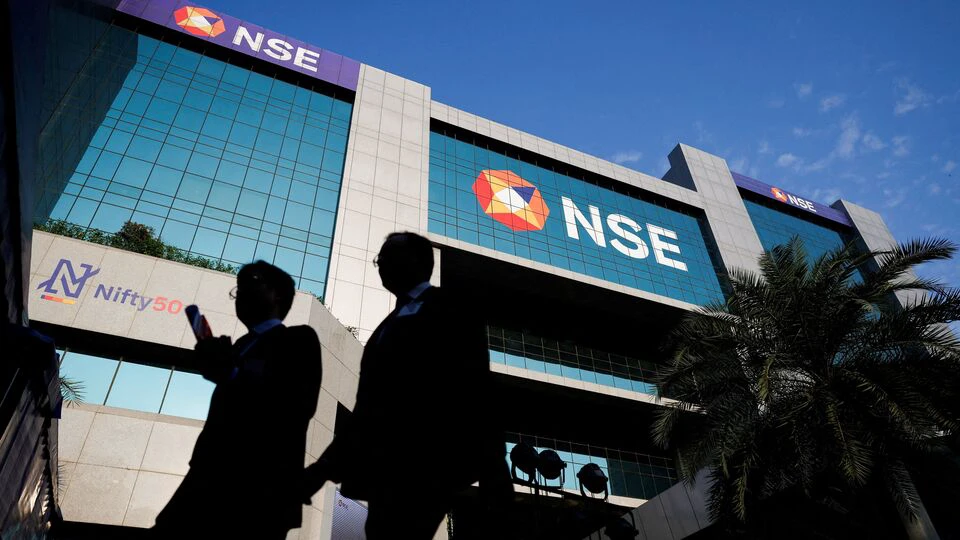MUMBAI: The discontinuation of weekly options by the Securities and Exchange Board of India (Sebi) will not have a significant impact on the financials of the National Stock Exchange (NSE), its chief executive Ashishkumar Chauhan said on Thursday during an investor call after the exchange’s second-quarter earnings announcement.
“Our volumes are not dependent on last day trading by investors,” Chauhan said in response to an investor query on the financial impact were weekly expiries to be discontinued by the regulator. “Our volumes are spread over almost all days even without the expiry day and so we do not see any issue going forward, whatever Sebi regulations are in this regard.”
On the financial hit, Chauhan elaborated, “It is difficult to guess, but broadly speaking we don’t see too much of an impact of any change that is being discussed, although it (change) may or may not happen depending on consensus that emerges on the issue.”
Equity options are a major revenue generator for stock exchanges like NSE and BSE. Of NSE’s total standalone transaction charges of ₹2,760 crore in the second quarter of the current fiscal year (FY26), equity options accounted for 75% ( ₹2,083 crore), with equity cash and futures segments accounting for the rest.
However, Sebi is considering data post the introduction of a second wave of reforms in July to curb retail frenzy in index options, which caused losses of ₹1.05 trillion to almost 9.5 million individual traders in FY25. This was higher than ₹748.12 billion suffered by 7.9 million investors in FY24.
Since September this year, NSE has shifted its Nifty weekly options expiry day to Tuesday from Thursday while BSE flipped its expiry to Thursday from Tuesday.
On Tuesday, NSE reported a 28% sequential fall in its Q2FY26 net profit to ₹2,098 crore, due to a one-time settlement fee to Sebi for legacy colocation and dark fibre cases. Excluding this fee of ₹1,297 crore, net profit rose 16% to ₹3,396 crore on total income of ₹4,160 crore.
Expiry day volumes
Data on options volumes backs Chauhan’s response during Thursday’s investor meeting that discontinuation of the weekly expiries would not have a significant impact on NSE’s business.
For instance, of total index options volumes of ₹10.41 trillion in October, expiry day volumes, over four Tuesdays of the month, accounted for just 28.5%. In September, the expiry day volumes contributed 32% of the ₹9.3 trillion total volumes, exchange data shows.
For BSE, the expiry day volumes accounted for 51% of total index options volumes of ₹4.3 trillion in October and 42% of ₹3.46 trillion in September, as per exchange data.
This shows that NSE volumes are relatively better spread over non-expiry days than BSE’s. This is due to it having an early-mover advantage over its smaller rival. NSE began offering Nifty options contracts in February 2019, while BSE relaunched Sensex options in May 2023.
Curbing options exuberance
The first wave of Sebi reforms effected from November last year included increasing contract sizes to ₹15-20 lakh from ₹5-10 lakh and restricting exchanges to launching just one weekly contract against multiple expiries earlier.
The second wave included a change in computing open interest, a gauge of money flowing into the market, from notional to delta-based to accurately reflect risk. Delta measures a change in the price of an option for every unit of change in the underlying price.
The impact of these changes on investor behaviour will be considered by Sebi before reaching a decision on weekly contracts.
Speaking at the Business Standard BFSI Summit 2025 last month, Sebi chief Tuhin Kanta Pandey said the regulator had taken a calibrated approach following market-wide consultations to contain the irrational exuberance of investors without stifling the market.
Ruling out any drastic measures, he had said: “Can we just shut down the market just like that? This is a very important question?”
